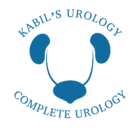Testicular Conditions
Hydrocele Treatment in Chennai
Best Hydrocele Treatment in Chennai
Testicular Conditions
Hydrocele Treatment in Chennai: Expert Care by Dr. Kabilan
Testicular conditions, affecting the vital organs known as testes or gonads, demand specialised care. The testis, derived from the Latin word ‘testimony,’ symbolises maleness and is a crucial component of the male reproductive system. Responsible for testosterone production and sperm generation, any disruption in testicular health requires prompt attention. At Dr. Kabilan’s Complete Urology, we offer comprehensive management of various testicular conditions with a focus on effective treatment and patient well-being.

Other Treatments
- Keyhole And Laser Treatment Of Kidney Stones
- Laser Treatment For Prostate
- Laparoscopic Treatment Of Urological Problem
- Kidney Transplantation
- Management Of Block In Urine Flow
- Management Of Blood In Urine
- Tumours In Kidneys
- Urinary Bladder
- Penis And Prostate
- Urinary Leak And Fistula Surgery
- Male Infertility And Male Sexual Problems
- Testicular Conditions
Common Testicular Conditions
Infections and Strictures
Repeated infections in the testis necessitate thorough evaluation as they might indicate urinary passage blockage (Stricture). Early recognition is crucial to prevent complications such as abscess formation and testis damage.
Torsion of the Testis
Torsion occurs when the testis rotates on its supporting cord, leading to the cessation of blood flow. This is a surgical emergency, as delayed correction may result in testicular loss. While torsion predominantly affects children, adolescents, and young adults may also present with this condition.
Hydrocele
Hydrocele, characterised by fluid accumulation within the layers of the membrane covering the testis (tunica vaginalis), can lead to scrotal swellings. Large hydroceles require treatment for various reasons including cosmetic concerns, pain, infections, and other complications. At Dr. Kabilan's Complete Urology, we offer advanced hydrocele treatment surgical procedures to address these issues effectively.
Tumours
Testicular tumours, while serious, are highly treatable and curable, especially when detected early. Any painless lump in the testis should raise suspicion of a testicular tumour. There are two main types:
Seminoma: A slow-growing cancer primarily affecting individuals in their 40s or 50s.
Non-seminoma: This type grows more rapidly and mainly affects younger individuals, including those in their late teens, 20s, and early 30s. Non-seminoma tumours include embryonal carcinoma, yolk sac carcinoma, choriocarcinoma, and teratoma.
Risk Factors and Evaluation
Risk factors for testicular tumours include undescended testis, family history, genetic conditions like Klinefelter syndrome, and some infertility conditions. At Dr. Kabilan’s Complete Urology, we conduct a thorough evaluation using ultrasound, CT/MRI scans, and serum markers to stage the tumours accurately. Our multidisciplinary approach ensures that patients receive personalised, comprehensive treatment ranging from surgery to radiotherapy and chemotherapy.
Other Treatments Offered
In addition to specialised care for testicular conditions, Dr. Kabilan’s Complete Urology offers a wide range of treatments, including:
- Keyhole and Laser Treatment of Kidney Stones
- Laser Treatment for Prostate
- Laparoscopic Treatment of Urological Problems
- Kidney Transplantation
- Management of Urine Flow Blockages
- Management of Blood in Urine
- Tumours in Kidneys, Urinary Bladder, Penis, and Prostate
- Urinary Leak and Fistula Surgery
- Male Infertility and Male Sexual Problems
At Dr. Kabilan’s Complete Urology, we prioritise patient care and utilise advanced treatments to ensure the best possible outcomes. For individuals seeking the best hydrocele treatment in Chennai or comprehensive care for testicular conditions, our expertise and commitment to excellence make us the top choice. Contact us today to schedule a consultation and experience personalised, expert urological care.
